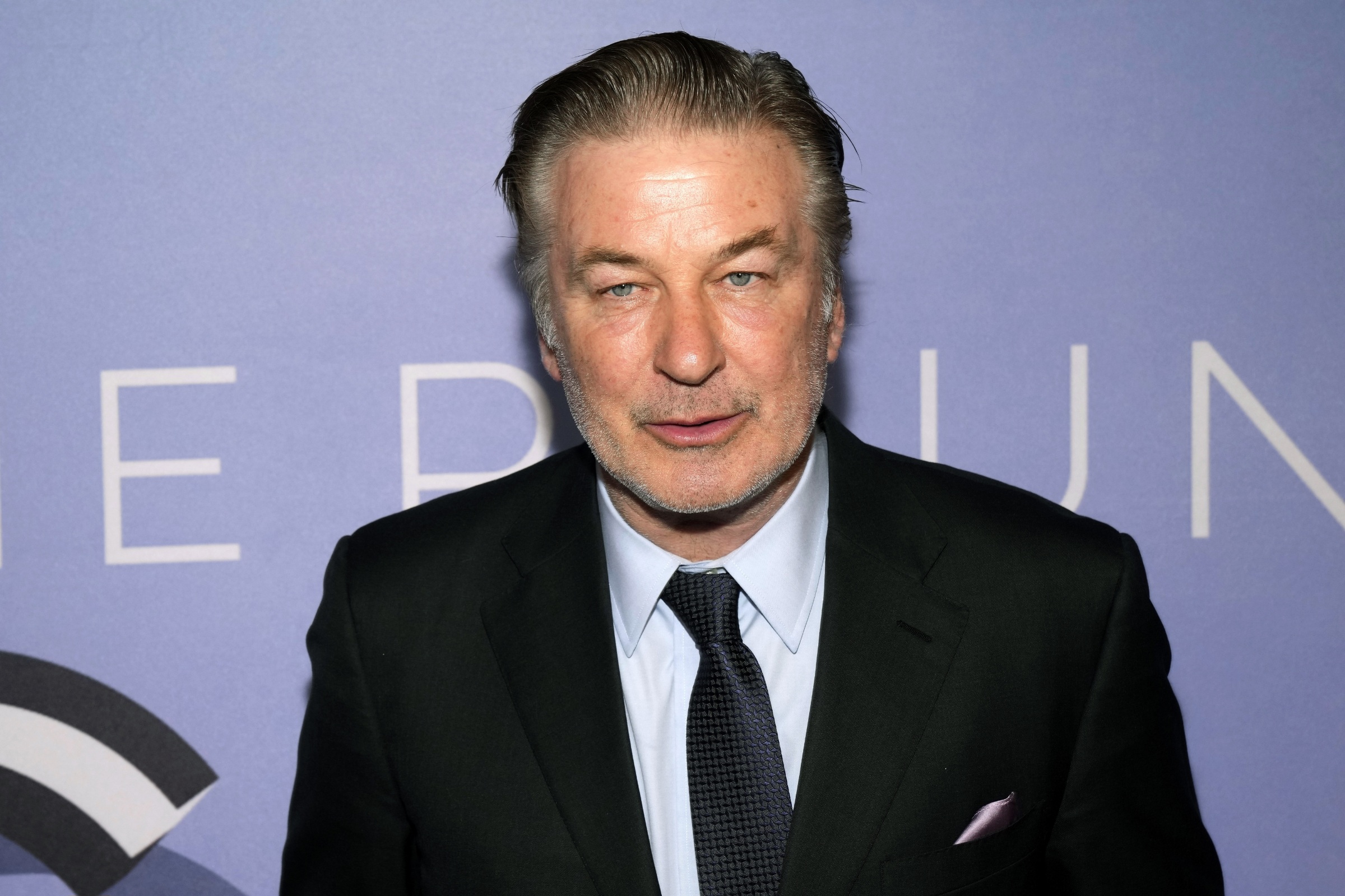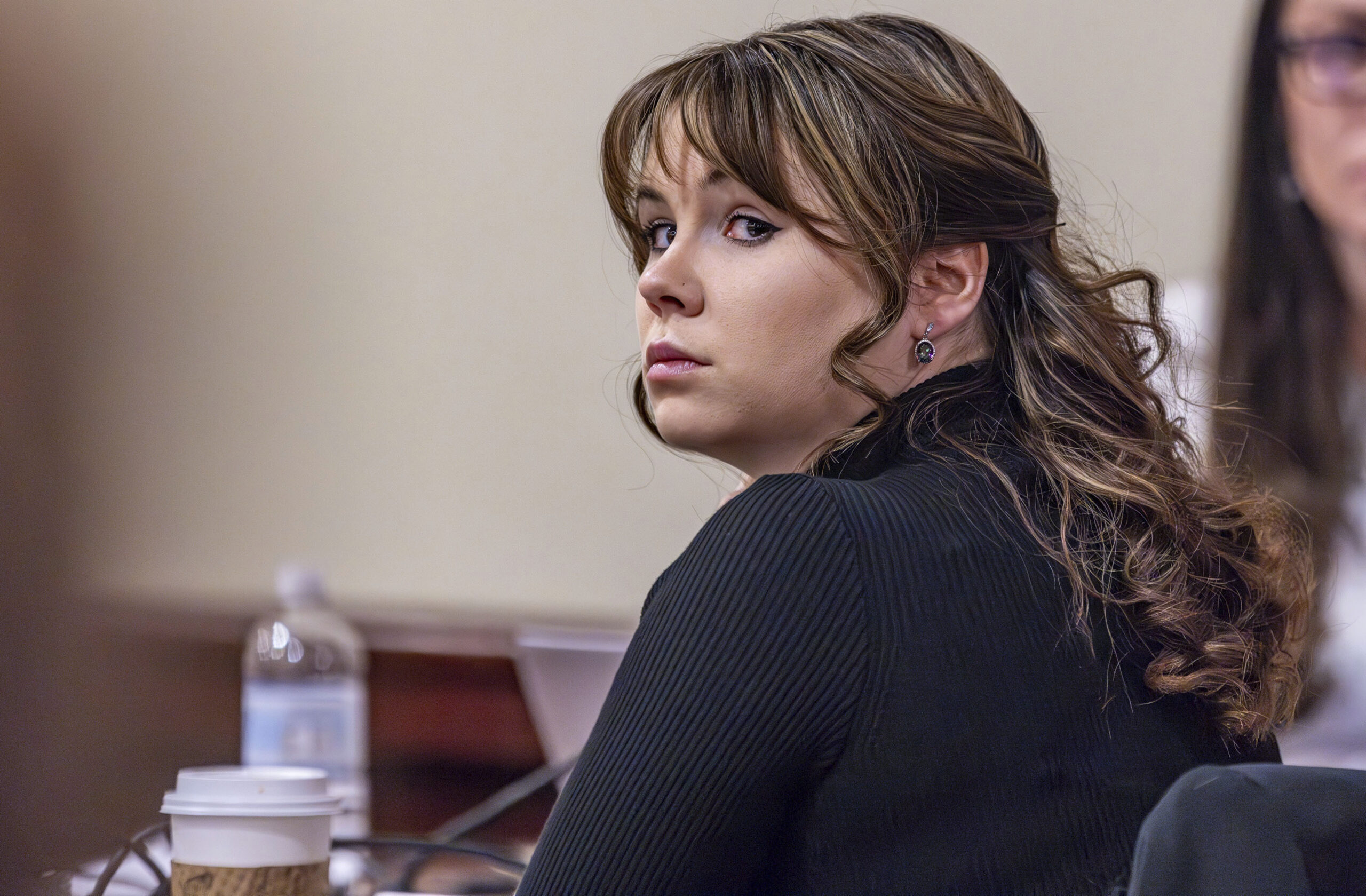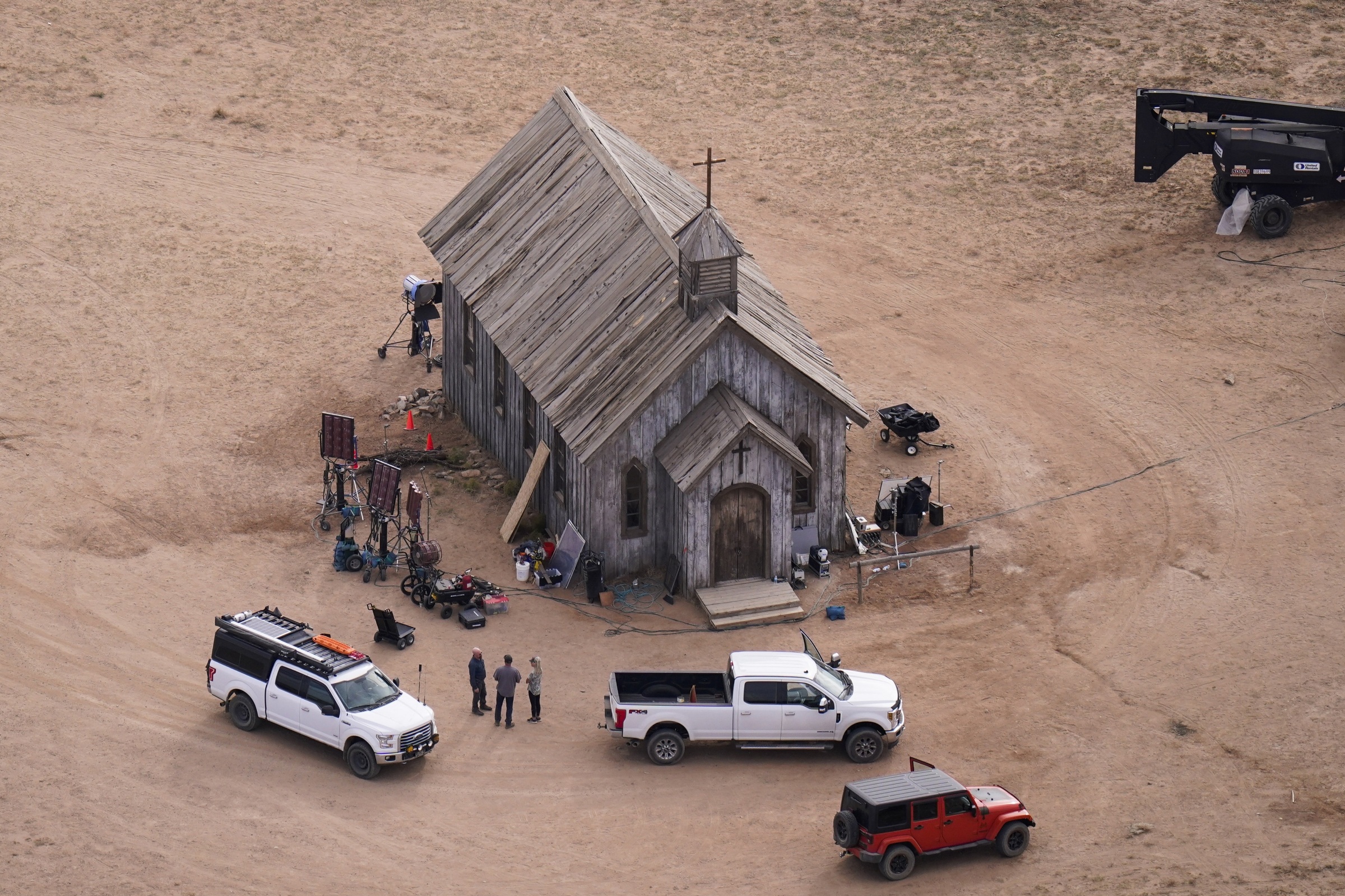SANTA FE, New Mexico (AP) — A New Mexico judge plans to rule next week on a grand jury indictment against Alec Baldwin in the fatal shooting on the set of “Rust,” after hearing arguments Friday that the proceedings were unfair to the defendant.
The indictment in January charged Baldwin with involuntary manslaughter in the fatal shooting of cinematographer Halyna Hutchins on October 21, 2021, at a movie ranch on the outskirts of Santa Fe.
Baldwin, a lead actor and co-producer on the Western, has pleaded not guilty to the charge, which carries a maximum sentence of 1.5 years in prison. His attorneys argued during the virtual hearing on Friday that the grand jury received a one-sided presentation in bad faith from prosecutors who steered jurors away from exculpatory evidence and witnesses.
During rehearsal, Baldwin was pointing a gun at cinematographer Halyna Hutchins when the revolver went off, killing Hutchins and injuring Joel Souza, the director. Baldwin has maintained that he pulled back the gun’s hammer, but not the trigger.

Baldwin’s motion to dismiss the indictment argued that the grand jury received inaccurate and limited testimony about the revolver and safety protocols on movie sets.
Over more than two hours of arguments Friday, defence attorneys for Baldwin accused the special prosecutor of neglecting her responsibilities to ensure impartiality and access to the defence’s witnesses and evidence.
“The fix was in,” said defence attorney Alex Spiro. “There were no (defence) witnesses there to testify. There was no evidence binder of the defense exhibits.”
“They never intended for the grand jury to ask for witnesses,” he continued. “They never wanted the grand jury to ask for exhibits.”
Special prosecutors say they followed grand jury protocols and accuse Baldwin of “shameless” attempts to escape culpability, highlighting contradictions in his statements to law enforcement, to workplace safety regulators and in a televised interview. A jury trial is scheduled for July.
Lead prosecutor Kari Morrissey on Friday defended her oversight of the grand jury, noting that she read to jurors a court-approved letter that outlines procedures for accessing exculpatory evidence and witnesses — and that she physically pointed at the defence’s boxes of evidence.
“The grand jury never asked to hear from witnesses. There is nothing I can do about that,” Morrissey said. “We followed all of the judge’s orders.”
Defence attorneys also highlighted that jurors were interrupted when they brought up questions about safety procedures on film sets. Baldwin’s attorneys said jurors were guided away from listening to testimony from a sheriff’s detective and instead toward an expert witness paid by the prosecution to talk about film set safety.
Judge Mary Marlowe Sommer seized on that point in a series of questions for Morrissey, asking why the detective wasn’t allowed to answer. Morrissey said the detective was well acquainted with the wrong ways to handle gun safety on a movie set from investigating the “Rust” set, but not well versed on proper industry protocols.
“I did not prevent the grand jury from getting answers,” Morrissey said. “I made sure the grand jury got the answers to their questions from the witness with the most experience.”
Baldwin did not appear at the hearing. Prosecutors have turned their full attention to Baldwin after a judge in April sentenced movie weapons supervisor Hannah Gutierrez-Reed to the maximum of 1.5 years at a state penitentiary on an involuntary manslaughter conviction for Hutchins’ death.
Prosecutors last year dismissed an earlier involuntary manslaughter charge against Baldwin after being told the gun he was holding might have been modified before the shooting and malfunctioned. A new analysis of the gun last year enabled prosecutors to reboot the case.
The indictment against Baldwin offers two possible standards for prosecutors to pursue. One would be based on the negligent use of a firearm. An alternative is to prove beyond a reasonable doubt that Baldwin caused Hutchins’ death without “due caution” or “circumspection,” also defined as “an act committed with total disregard or indifference for the safety of others.”
Defence attorneys also accused prosecutors of making little to no effort to ensure the jury could access several witnesses, including the film’s director, as well as assistant director and safety coordinator Dave Halls and props master Sarah Zachry. Halls last year pleaded no contest to negligent handling of a firearm and completed a sentence of six months of unsupervised probation.
The judge asked Morrissey of Friday about her efforts to communicate with defence witnesses in case they were called upon by the grand jury. Morrissey said she contacted several but not all witnesses — but received assurances from a relevant judge that the grand jury’s time could be extended if a witness was not immediately available.

The two-week trial of Gutierrez-Reed gave attorneys for Baldwin and the public a unusual window into how the actor’s own trial could unfold.
Baldwin figured prominently in testimony and closing arguments that highlighted his authority as a co-producer and the lead actor on “Rust.” Both the prosecution and defence in Gutierrez-Reed’s trial dissected video footage of Baldwin before the fatal shooting for clues about breakdowns in firearms safety.
Prosecutors said Gutierrez-Reed unwittingly brought live ammunition onto the set of “Rust,” where it was expressly prohibited, and failed to follow basic gun safety protocols.
Gutierrez-Reed is appealing the conviction, decided by a jury in March, to a higher court but hasn’t yet filed detailed arguments. At sentencing, Gutierrez-Reed told the judge she tried to do her best on the set despite not having “proper time, resources and staffing.”
After the shooting in New Mexico, the filming of “Rust” resumed but in Montana, under an agreement with Hutchins’ husband, Matthew Hutchins, which made him an executive producer. A wrongful death lawsuit in civil court by Matthew Hutchins and the Hutchins’ son was settled under undisclosed terms.
Defence attorneys say Baldwin last year was offered a deal to plead to a “minor offense” before a grand jury was convened, but the offer that was “inexplicably retracted” before the deadline to respond.







